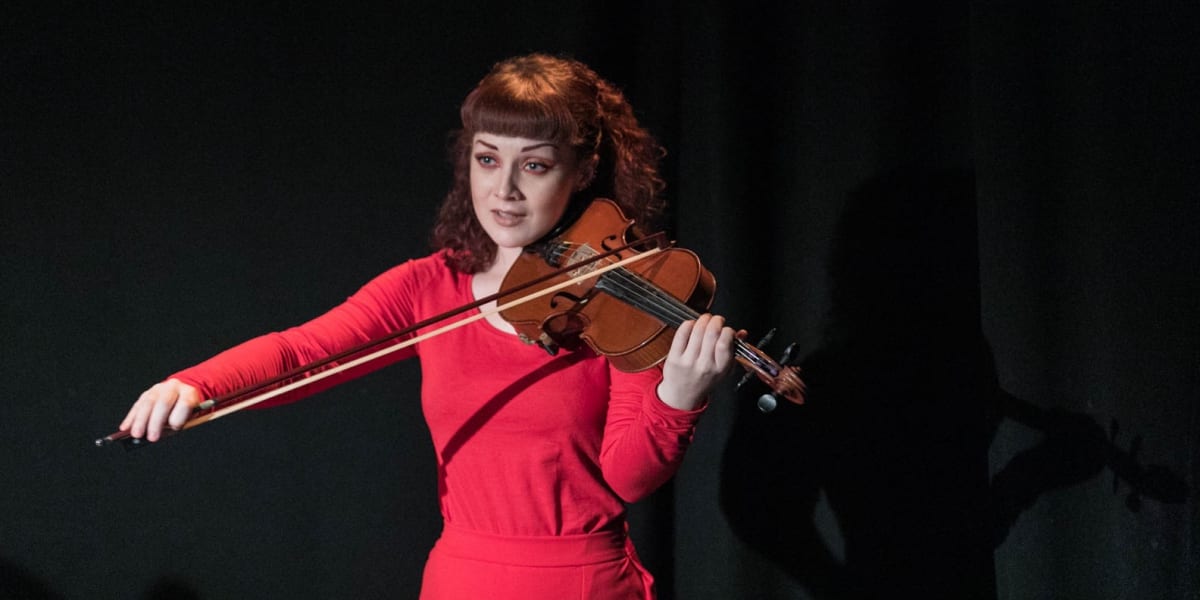The top floor Etcetera theatre in Camden was transformed from cosy black box studio into a hellish nightmare of a Sarah Kane calibre. It soon became hard to disagree that ‘the underworld is here’
Indeed Emily Louizou’s previous work directing ‘4.48 Psychosis’ in 2015 shines through as the audience are transported along the poetic and visual abstractness of this macabre thriller.
The room is bathed in red light, the ensemble is bathed in red light, red clothing, red lips, red makeup.
The piercing stares of the all-female chorus featuring Sophie Crawford, Ellie-Jane Goddard and Samara Zwain as three Virgil like furies leave an audience squirming; and in the dimming lights of this bleak world eerie sounds greet us, followed by the tones of a violin, cello and accordion rising louder and louder.
What makes TROY a unique show is a brilliant incorporation of music and song into the language of the play. With original composition by David Denyer, each actor-musician is armed with an instrument which they use for deadly poignancy. A violin ominous in tone is caressed like a child. A growling cello, when laid down, becomes a corpse. And a taunting accordion transforms into a set of gasping lungs. The fusion of these three instruments oscillates between melancholic cries in unison, deafening crescendos and intimate softness. The tension this music creates floods and ebbs away in a Hitchcock fashion, following the breathing patterns of the voices and the body movements of the ensemble who become one with the instruments. The tension is sustained throughout the performance.

This is complemented by the operatic nature of the ensembles’ sonorous voices chanting, speaking, wailing and singing together or solo in a siren-like manner. Rising and falling they represent the voices not just of the three characters Priam, Hector and Astyanax, but the cries of the many undone by the chaos and destruction of war; something poignantly stated in the director’s note as making up 92% of history. We are reminded through this performance, premiering exactly 100 years after the end of World War I of the inescapable cycles of war.
The playwright Dimitris Dimitriadis known for his poetic and philosophical dimension and a highly elaborated linguistic style is not lost in Louizou’s translation of the play.
The exquisite performances’ magic lies in the permeating of the intimate space between actor and audience, between philosophical understanding and distancing abstract; the singing and instruments fill the room drawing us into the story and we become one with the plays voices and the poetry.
The characterisation was equally strong, the appropriating style for ‘The Grandfather’, ‘the Father’ and ‘the Son’ intricately made each unique whilst reminding us of their representing archetypal figures within our society. It had the audience yearning for gore like Priam, swooning with Hector over yielding one body to another on the battlefield and stoking the fire of our childish passions for fighting through ten-year-old Astyanax.
The play challenges and provokes reflection. This is a great play outstandingly directed and performed. Highly recommended.

